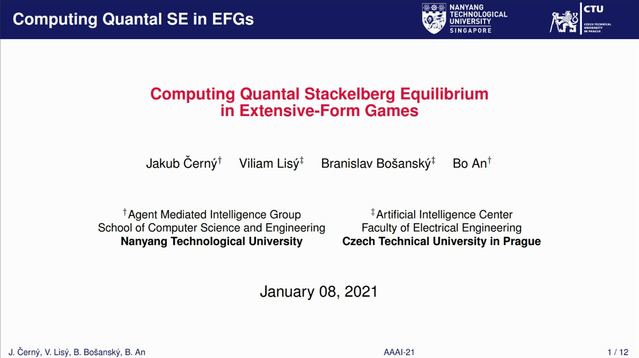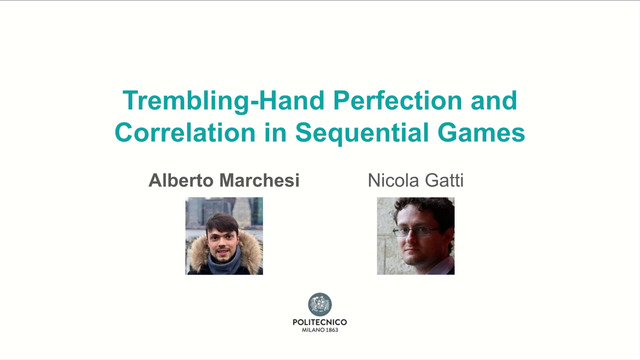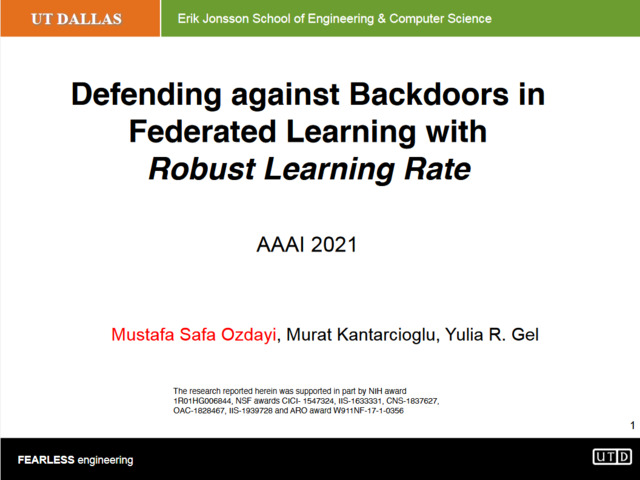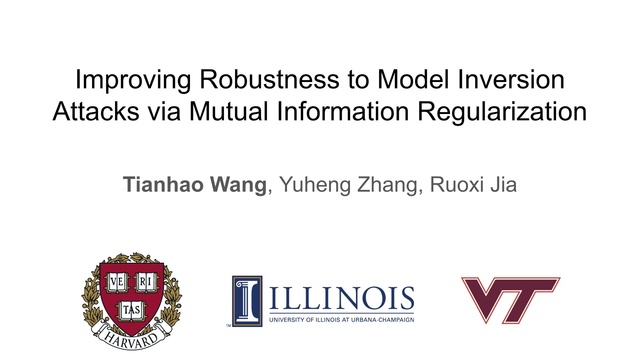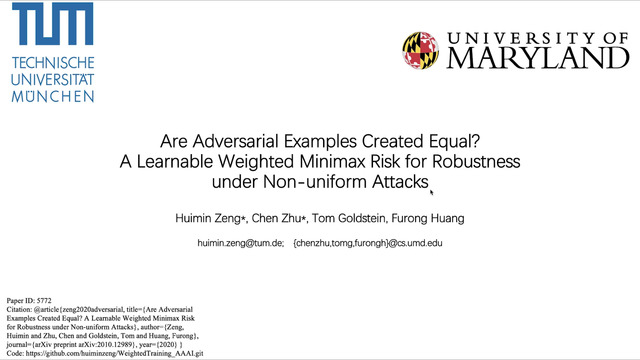Abstract:
\emph{Is there a classifier that ensures optimal robustness against all adversarial attacks?}
This paper answers this question by adopting a game-theoretic point of view. We show that adversarial attacks and defenses form an \emph{infinite} zero-sum game where classical results (e.g. Nash or Sion theorems) do not apply. We demonstrate the non-existence of a Nash equilibrium in our game when the classifier and the adversary are both deterministic, hence giving a negative answer to the above question in the deterministic regime. Nonetheless, the question remains open in the randomized regime. We tackle this problem by showing that, under mild conditions on the dataset distribution, any deterministic classifier can be outperformed by a randomized one. This gives arguments for using randomization, and leads us to a new algorithm for building randomized classifiers that are robust to \emph{strong} adversarial attacks. Empirical results validate our theoretical analysis, and show that our defense method considerably outperforms Adversarial Training against state-of-the-art attacks.




